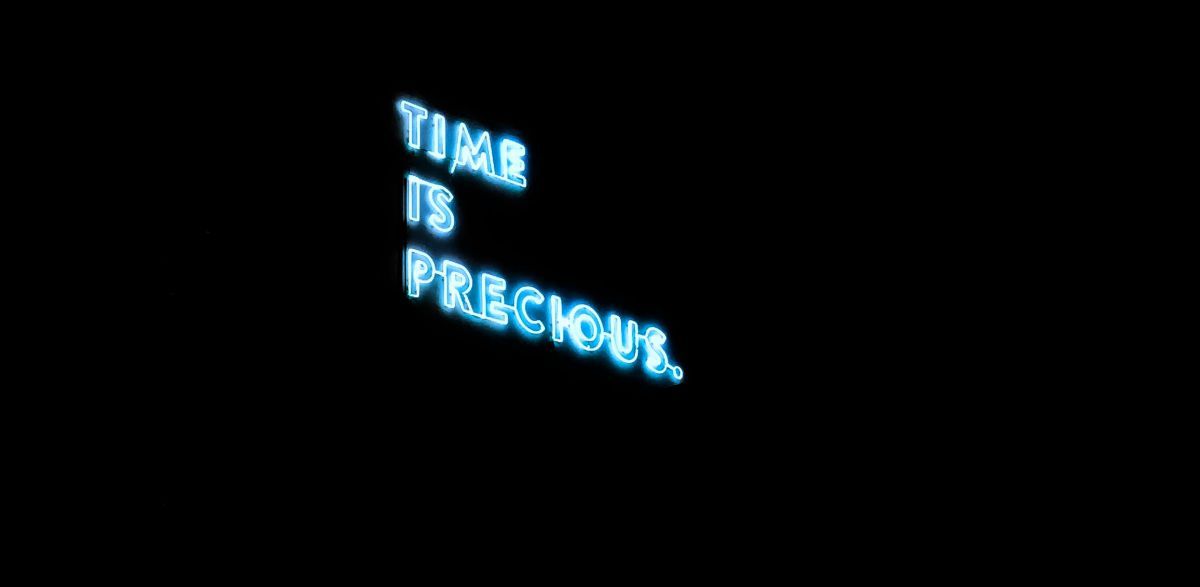Interview with Maciej Aniserowicz and Robert Strzelecki, the initiators of the SoftwareHut Speaking project, which promotes the trend of brand-building as a professional speaker among programmers.
Maciej Aniserowicz – programmer, trainer and author of the most popular programming blog in Poland – devstyle.pl, the devtalk.pl podcast, also a vlogger and speaker at the most important programming conferences in the country. A Microsoft MVP (Most Valuable Professional) in the .NET category for many years. A Microsoft Certified Professional since 2005. He is one of the leaders of the .NET Group in Białystok, a co-organizer of the Programistok conference, as well as the organiser of the “Daj się poznać” [Let them get to know you] contest.
Robert Strzelecki – Vice President of the TenderHut capital group, CEO of SoftwareHut, a graduate of the Polish-Japanese Academy of Information Technology. He has experience in managing international products, leading innovative projects, preparing for the sale and/or restructuring of companies and implementing IT systems. He has broad technical and substantive experience in supporting contractors. He conducts training seminars and workshops concerning the evaluation of IT products’ potential, project management, and the security of IT systems.
Is a lack of soft skills a problem when people in the IT industry have such great technical and expert knowledge? Can soft skills be neglected?
RS: Of course it’s a problem because even if somebody is an expert in a very specialised field if they can’t pass that knowledge on to someone else, there is no benefit for their community. IT isn’t easy, but I believe that knowledge in this field can be passed on in an accessible way in spite of everything. It is this belief that we founded SoftwareHut Speaking.
Do employers in the IT industry pay attention to soft skills?
RS: Yes, the IT community needs such skills much more than several years ago. Work in the modern IT industry necessitates frequent contact with people and good communication skills. We are leading international projects, and individual members of a single team may work at different locations. Communication is the foundation of a successful project.
Can the art of speaking be taught?
MA: Yes, it’s all a matter of practice. In my case, five years passed between my first presentation and my first SUCCESSFUL presentation. In certain cases, more time, patience and consistency are required.
RS: I think that speaking is a craft that everyone can learn. Of course, it’s great when someone proves to be talented (laughs) and becomes a charismatic speaker, but I think that with training, one can become a sufficiently good speaker even without special skills.
What is the SoftwareHut Speaking project about?
MA: SoftwareHut Speaking is intended to expose programmers to challenges other than writing code every day. Our industry offers many opportunities, and speaking at conferences is one of them. And it is an opportunity that brings amazing benefits. It is very difficult, but at the same time: it’s worth it.
RS: Besides that, we have already recruited a fantastic group of specialists who are very driven to disseminate their knowledge, and it is our ambition to promote them within the IT industry. Thanks to this, the world of information technology can become more accessible to people outside of this business sector.
What, in your opinion, is interesting about this initiative?
MA: Not many companies invest in developing their employees’ so-called “soft skills”. The fact that adepts at public speaking can develop in this direction during working hours is exceptional on the scale of our country.
RS: This project will profit both sides: programmers because they will be able to present themselves to a wide audience, and listeners who will be able to learn more about the most challenging problems in simple and accessible language.
What errors do IT professionals make most often in front of audiences?
MA: IT professionals are not some special group. Speakers – regardless of profession – are often inadequately prepared for their presentation. They do not ask themselves the question: “what am I offering to all of these people?”. They are too focused on themselves and not focused enough on the value they provide to their audience.
RS: On my part, I can also add that I often notice that the language used in presentations is too specialised. Speakers forget that people with different levels of ability may be listening, and difficulties with understanding the topic can discourage people who aren’t as familiar with the industry from developing further.
Developing the soft skills of IT professionals is not a typical undertaking. Maciej, what are your methods of working with programmers?
MA: My method of working with programmers is to be direct. I am a programmer myself, for over a decade now, so even if I’m not programming full-time now, I still have a good understanding of what programmers deal with on a daily basis. We understand each other because of our similarities.
Maciej, how did your public speaking adventure begin?
MA: At the beginning, in college, every time I had to present my work in front of a group was a traumatic experience for me. Over a year after graduating from college, I was persuaded to do my first “non-mandatory” presentation at an evening meeting of programmers from Warsaw. The enormous stress and disappointing effect of my first attempt dissuaded me from trying again for the next several years. 5 years and 10 failures later, I finally “got” what public speaking was all about. Thanks to this difficult path, I grew as a person, gained self-confidence, and I now speak regularly at conferences all over the country.
What advice can you give those who must speak publicly but are afraid to do so? How can one break through the fear of public speaking?
MA: In my case, practice and facing my fears consciously worked. I don’t know any other way than to just… get up on stage until the fear passes. It’s worth it.
How do you prepare speakers for their presentations?
MA: The first presentation is the most difficult. This is why I try to make each member of our group get it over with as quickly as possible. After the presentation, we analyse the strong and weak points. We focus on development, discuss the subject and discover so-called “best practices”. I myself have been speaking on stages regularly for several years, so I share my experience.
Where did your interest in public speaking come from?
MA: Public speaking events can help a programmer survive in a very difficult profession. A successful presentation really gives one self-confidence. A failed one teaches humility. Contact with people at conferences translates directly to positive changes in day-to-day communication at the workplace. Particularly in communication between programmers and the rest of the world.
How will the IT world react to the SoftwareHut Speaking project?
MA: It’s a very exceptional initiative, and its long-term effects cannot be predicted. I would very much like for the possibility of participating in it to translate to an influx of new programmers to Białystok (laughs). And if other Polish companies follow our lead, all the better.
RS: We are hoping for a positive response, and as Maciej says: that others will follow suit. Because of this, the circulation of specialised knowledge could become widespread, and this will foster rapid development of the entire industry.
How can SoftwareHut Speaking help to break the stereotype of the introverted and reticent programmer?
MA: This stereotype is just that: a stereotype, false by definition. Over the last decade, the IT industry has changed so much, that similar stereotypes are being abolished very quickly, even without additional initiatives.
RS: I would even say that many specialists who are full of energy and eager to cooperate with others have entered the IT industry in recent years. It is enough that the SoftwareHut Speaking project will put this on display now on a greater scale, and the introverted programmer stereotype will be wiped out once and for all.
Maciej, do you have the feeling that you have become the ambassador of soft skills among programmers? You blog, you have a podcast, and you organise the “Daj się Poznać” [Let Them Get to Know You] contest, which deals with the same subject, and you are even going outside your comfort zone by recently becoming a vlogger.
MA: I like to face new challenges, especially when they also bring profit to others. “Daj się poznać” [Let Them Get to Know You] is one such challenge. This is an undertaking that is developing the Polish programming community, allowing young people to present themselves to the industry while simultaneously training me to be an organiser. (laughs) I am constantly inviting those interested to visit the http:/dajsiepoznac.pl website to learn more.
Do you know other people who are trying to make programmers more active like you are?
MA: There is a large group of such people: like Andrzej Krzywda, Jakub Gutkowski. SoftwareHut itself has many people who co-organize meet-ups in tech communities. There are many speakers at these meet-ups from among local IT enthusiasts – Hubert Zub, Kamil Mijacz, Karol Rogowski, as well as people privately involved in co-organizing the Programistok conference, like Mateusz Andrzejewski. This competition doesn’t worry me though, quite the contrary: I am pleased that there are so many, because, and I repeat: action on a broad scale serves development, and that’s always good.
Maciej, when you started to cooperate with an IT company, were you afraid that you would lose your independence as a creator?
MA: SoftwareHut is a company that is distinct in our region for a multitude of reasons. I know a lot of people involved in the company’s activity, I have worked with some of them on joint initiatives in the past. When I undertook this challenge, I did not even consider whether I would lose something, but rather how much I could gain.
And why did SoftwareHut decide to work with Maciej?
RS: Maciej combines two traits that are critical for the leader of a group like this: he knows the IT industry and he has experience as a speaker. As a vlogger, he knows how to speak so that others will listen. He simply convinced me that he is the perfect candidate for this position.
More info and the full schedule: http://softwarehut.com/speaking/


